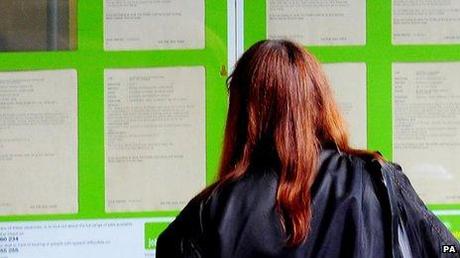It’s not exactly news that the youth of today have been done up like kippers. This’ll show them – it seems the stress of being a “Neet” (not in employment, education, or training – nice nickname, guys,we love it; though we prefer Vatsyp – very angry totally shafted young people) is quietly making us the next massive strain on the NHS. Look guys, we’d love to contribute some tax towards this, but we’d need jobs. And oh – if we had jobs, there wouldn’t be an explosion of stress-related illness to pay for. It’s a Catch 45. Like a Catch 22, but twice as bad plus one….
By James GallagherHealth and science reporter, BBC News Youth unemployment in the UK is a “public health time bomb waiting to explode”, according to a review by the World Health Organisation.
Youth unemployment in the UK is a “public health time bomb waiting to explode”, according to a review by the World Health Organisation.It warned of the health consequences of high numbers of Neets – people not in employment, education or training.
More than one million 16 to 24-year-olds in the UK are classed as Neet.
The report also said the UK was behind other European countries on female life expectancy, deaths of children under five and child poverty.
The WHO and the University College London Institute of Health Equity analysed the reasons for differences in life expectancy across Europe.
For the UK, it highlighted the dangers of young people being out of work.
“Persistent high levels of the number of young people over 18 not in employment, education or training is storing up a public health time bomb waiting to explode”
Prof Sir Michael Marmot
Mortality rates
Wealth is tightly linked to life expectancy and is one of the major reasons for the north-south health divide in the UK.
Being unemployed has immediate health consequences, including an increased risk of depression and suicide.
Being out of work in the longer term increases the risk of chronic diseases such as cancer, heart disease and stroke.
Prof Sir Michael Marmot, who led the review, said: “Unemployment may be falling in the UK, but persistent high levels of the number of young people over 18 not in employment, education or training is storing up a public health time bomb waiting to explode.”
The length of the fuse is thought to be 10 to 20 years.
The report said women and children in Spain, Italy and Cyprus would fare better than those in the UK.
It said life expectancy for women was 83 years in the UK, behind Spain and France at 85 and Germany at 84.
The report added that mortality rates in the under-fives were higher than most countries in the west of Europe and even some eastern European nations, including the Czech Republic and Slovenia.
‘Human right to health’
Figures also showed that one in four children in the UK live in poverty – a figure higher than other countries such as Iceland, Cyprus and Ireland.
Prof Marmot said: “We are failing too many of our children, women and young people on a grand scale.
“I would say to any government that cares about the health of its population: look at the impact of their policies on the lives people are able to lead and, more importantly, at the impact on inequality.
“Health inequality, arising from social and economic inequalities, is socially unjust, unnecessary and avoidable, and it offends against the human right to health.”
Prof John Ashton, the president of the Faculty of Public Health, said: “Michael Marmot is absolutely right that the number of ‘Neets’ is a public health time bomb.
“There is a lot of evidence to show that being out of work is bad your health.
“It is disgraceful that a generation of young people are growing up in a world when unemployment is the norm, not the exception.”
The Department for Work and Pensions said it was “really encouraging” that the numbers of young people claiming Jobseeker’s Allowance was falling, but “we’re not complacent – we’ll continue to do everything possible to give young people the best chance in life”.
A Government spokesperson said health inequality was taken “very seriously”.
In a statement they said: “The Chief Medical Officer raised this issue in her recent report on children’s health, outlining the need to invest early in our young people to give them good foundations and the best start in life.
“We have already successfully protected the poorest from falling behind and last year we saw a reduction of 100,000 children in workless poor families. In addition, we are training an extra 4,200 health visitors by 2015, and 16,000 of the most vulnerable families will be helped by family nurses.”
